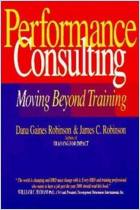Melden Sie sich bei getAbstract an, um die Zusammenfassung zu erhalten.

Melden Sie sich bei getAbstract an, um die Zusammenfassung zu erhalten.
Allison Rossett
First Things Fast
A Handbook for Performance Analysis
Pfeiffer, 2009
Was ist drin?
Before you train, you have to have a plan.
Recommendation
“Performance analysis” (PA) allows companies to determine their needs and assess their accomplishments based on data, not guesses or hunches. Whether you’re looking to improve your employees’ skills, upgrade your company’s support systems or forecast trends, accurate PA is the key to success. Business owners, human resources personnel and learning consultants must know how to execute PA. Clients who need PA usually want its findings quickly. Business moves so fast that any delay in PA risks making its information obsolete. But working quickly need not mean a drop in quality, argues education technologist Allison Rossett. With clear explanations, charts and testimony from “the trenches,” she illuminates the path to accurate, applicable performance analysis. getAbstract believes her insights and advice are a valuable guide for chief learning officers, organizational development staffs, and HR officers or consultants who seek to lift their workforces or clients to the next level – and who prefer to look before they leap.
Summary
About the Author
Training and corporate learning expert Allison Rossett serves on the faculty of San Diego State University. She also wrote Beyond the Podium.



















Comment on this summary